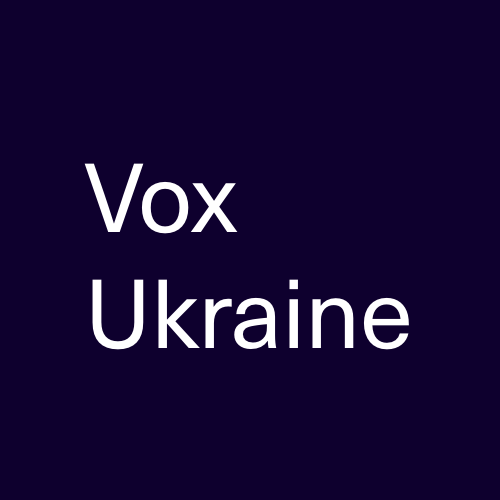Five years after the Revolution of Dignity hadn’t passed in vain. Some media and NGOs actively participate in the information war with Russia and its satellites inside Ukraine. But the latter act, too. They try to discredit honest media and civic organizations. To understand this threat better, let’s analyze a glaring case, that can be named ‘Viktor Medvedchuk vs. VoxCheck’.
On July 24th, 2019 Viktor Medvedchuk, the head of the political council of the “Opposition Platform – For Life” political party, went on air at 112 Ukraine. Using the usual procedures, VoxCheck analyzed his speech, found three facts in it and checked them. All three were false (see more in the VoxCheck video).
Medvedchuk’s information army
On August 5th, around 15:00 we have published this video at voxukraine.org website. In less than two hours, the Opinion section of the 112.ua website published an article of “Opposition Platform – For Life”, titled “VoxCheck, paid by Soros, spreads lies about Viktor Medvedchuk”. Roughly at the same time the website of the political party published the same article with a slightly different title: “VoxCheck launches an unsuccessful attack on Viktor Medvedchuk, armed with lies and stupidity”.
By the end of the day similar articles appeared on 10 more websites. In total, we found 22 materials replying to our video. 6 of those cited “lies” and “stupidity”, 5 used “lies” only, 4 used experts trying to refute VoxCheck analysis about the gas and opinion polls, 3 informed readers about “Soros’ commission”. Articles continue to pop up. You can follow them here.
There was only one article on the political party’s own website, while Channel 112 and its website published 6 of those, NewsOne – three articles, dneprcity and Mignews two each. Other websites published one article each. Interestingly, Channel 112 changed its tune from “lies and stupidity” and “Soros’ commission” to “VoxCheck analytical platform spreads false information.” At this time, we are unaware of the reason for such a change.
Experts defending Medvedchuk
On August 6, our reviews were discussed by three experts at 112.ua: Valentin Zemlyansky, Sergey Lozovsky and Viktor Skarshevsky. All three are in the database of hidden PR managers on texty.org. “Texty” research reports that all of them are connected to Viktor Medvedchuk and Channel 112, in their articles and comments they promote him regularly and use his pro-Russian rhetoric. We have analyzed their arguments.
Hosts asked energy expert Valentin Zemlyansky to comment on our review. However, they formulated the question as “VoxCheck says we buy gas not from the Russian Federation, but from European partners”, while our review was merely about the existence of reverse gas supply. Zemlyansky stated that there were no formal issues with the “statement” of VoxCheck since Ukraine has contracts with 15 European companies.
Then the expert tells that in fact there is a reverse gas flow, confirming our correct conclusion, not the one voiced by 112 hosts. Our refutation of the gas issue concerned only the physical existence of a “reverse gas flow”.
Skarshevsky was also asked why there were “differences” in the issue of reverse gas flow?
The expert does not directly answer this question, but, like the Oppozition platform team, refutes the data
about gas supply to Ukraine, which are accessible online in real time. In addition, he hopes the new Ukrainian government will resume direct gas supplies from Russia.
112 discussed other issues, namely sociological polls and poverty in Ukraine, – with another expert, Sergiy Lozovsky. But Lozovsky does not even know what VoxCheck is.
Sergiy Lozovsky, political analyst (4:27 – 5:09)
“These are servicemen – political scientists, political technologists, all sorts of rating agencies, now some new agency appeared – Vox Change or something, oh, VoxCheck. Where did it come from, where did it suddenly crawl out? It is not clear. But they suddenly began to give ratings completely different from everyone else, began to give completely different indicators. Where do they get them from, why and for whom? Unclear”.
First, VoxCheck is a part of VoxUkraine, an independent analytical platform. And the team did not “suddenly crawl out” but was founded after the Revolution of Dignity in 2014 by a group of highly qualified economists and lawyers working in Ukraine and abroad. VoxCheck checks the words of politicians, officials and public figures. We are not a “rating agency” and we do not conduct sociological research or polls but we check whether policy makers use poll results correctly. Viktor Medvedchuk used the poll results in a wrong way. See the explanation below.
In an interview with Lozovsky the host repeated the statement voiced by the “Opposition Platform –
For Life”: VoxCheck was wrong, Ukraine really became the poorest country in Europe, because “World Bank data for 2018 clearly show that Moldova bypassed Ukraine both in terms of GDP and average monthly wage.”
The host, like the political force, is misleading viewers by comparing GDP per person in nominal dollars instead of comparing it by purchasing power parity – taking into account price levels in the countries.
Later, when asked by the host who to believe, Lozovsky notes that “people cannot check the information themselves” and that practically only political parties “have the ability to obtain objective or more or less objective information – if they order it themselves”. This statement is wrong. After all, there are quite a few organizations that provide high quality polls and can be trusted. Other information people can obtain independently. For example, they can get the data from the web-site of the State Statistics Committee, other state agencies and international organizations. VoxCheck uses open source data only. Therefore, anyone can check the correctness of our conclusions.
Sometimes we make mistakes, and our readers inform us about it. In such cases, we always adjust the articles and apologize to the readers. In the case of these three quotes, our initial checks are correct.
What did the “experts” say
Statement #1
Medvedchuk: “Ukraine became the poorest country in Europe”.
VoxCheck analysis: “False, Ukraine occupies second to last place in Europe by GDP per person by purchasing power parity”.
Medvedchuk’s advocates: Opposition Platform thinks we are wrong. Based on the World Bank data, GDP of Moldova is 3189,4 USD per person and has indeed surpassed Ukraine with its GDP per person being 3095,2 USD. They also offer an example of average monthly salary: Moldova beats Ukraine there, too. By the end of 2018 average monthly salary in Ukraine was USD 325,9, while average salary in Moldova was USD 383,7.
Conclusion: In order to compare countries, one needs to use GDP in purchasing power parity, not in nominal dollars. This indicator takes into account the difference between price levels in the countries in question, i.e. it shows how many goods and services can be purchased for one US dollar. Based on this indicator, Ukraine has surpassed Moldova in 2018 by 1 932 PPP USD and remained in the second to last place, just like in the previous seven years. VoxCheck doesn’t deny that Ukraine is one of the poorest countries in Europe but we believe that claims must be accurate.
Statement #2
Medvedchuk: “80-85% of Ukrainians consider fighting in Donbass their main problem.”
VoxCheck analysis: “False. According to various polls, the war in the East
Ukraine is the biggest problem for 45‒64% of Ukrainians.”
Medvedchuk’s advocates: Political force says that 80-85% of Ukrainians consider fighting in Donbass to be the main problem citing the research “Your opinion: May 2019” conducted by the Center for Social Monitoring, Ukrainian Institute of Social Research and Rating Group between April 30th and May 10th. The question of the poll was formulated as follows: “How important these problems are for you?”. The respondent had to assign to 22 listed problems a score from 1 (not important) to 5 (very important).
Conclusion: However, in order to conclude that “people consider [specific problem] the most important one”, the question should be formulated as “Which problem [or several] is the most important for Ukraine/for you personally? ”
That is exactly the question, for example, in the poll conducted by the sociological group “Rating” between June 12 and June 23 (pages 82-83). According to this poll, 45% of respondents consider “fighting in Donbass” one of the three most important problems for Ukraine, and 33% of respondents consider this problem important for themselves personally.
For comparison, we also took the March data from the Sotsis poll, where 63.7% of the respondents named the military conflict in eastern Ukraine their most important problem.
Statement #3
Medvedchuk: “There is no reverse gas flow. Ukraine uses Russian gas transited to the EU, and pays European operators”
VoxCheck analysis: False, Ukraine imports gas from the European countries, it does not take gas during its transit through the Ukrainian territory.
Medvedchuk’s advocates: His team says that Ukraine buys Russian gas based on the agreements with European operators, but in fact this gas is taken during its transit from Russia to Europe. Real-time data provided online by European contractors political party labels “a fairy tale” and “an outdated joke for imbeciles, corrupt individuals and European contractors”.
Conclusion: There are two approaches to the origin of gas Ukraine buys – physical one and the economic one. “Physically” Ukraine imports gas from Slovakia, Poland and Hungary, and online data confirm this. For example, we do get this gas via the gas distribution station in Velke Kapusany, Slovakia. “Economical” matter is about the conditions of gas purchase, disregarding it origin. As soon as Slovakia, Poland and Hungary receive gas through Ukraine at their border, it legally becomes property of companies of those countries, not Russia.
So when we buy gas from Europe (and in five years we had zero problems with European contractors, contrary to the past relations with Gazprom), we receive gas which belongs to European operators, not Gazprom. So the origin of this gas doesn’t matter.
Concluding remarks
The purpose of this article was not to protect VoxCheck or prove something to somebody.
In our opinion, this case is a perfect illustration of the resources Viktor Medvedchuk possesses, and his willingness to use them at even the smallest reason. In order to refute a 1,5-minute-long video, more than 16 minutes of national TV channels’ time was used, and 12 media were involved.
At the same time, articles published on these websites contain all the indicators of fakes of which we talk in our study materials – they are overly emotional, repetitive, and tend to manipulate concepts. A positive effect of this case is the fact that media, websites and “experts” loyal to Medvedchuk have revealed themselves. There might be more of them. But we’ll continue to watch them. It’s our little contribution into restoring of the institution of reputation in Ukraine.
Attention
The authors do not work for, consult to, own shares in or receive funding from any company or organization that would benefit from this article, and have no relevant affiliations



